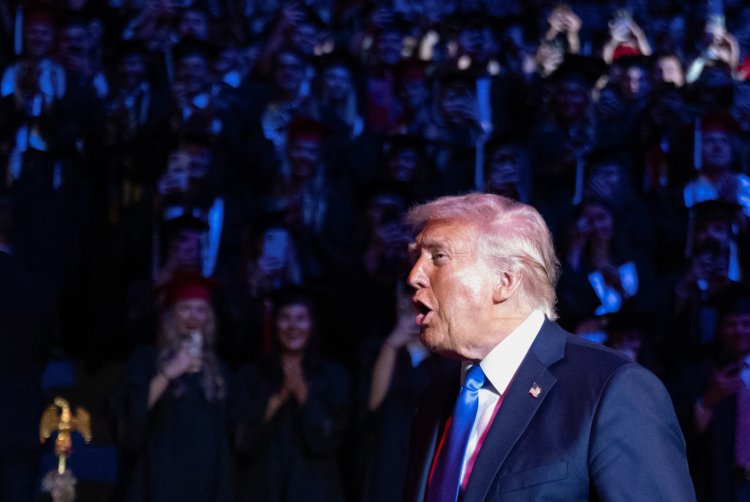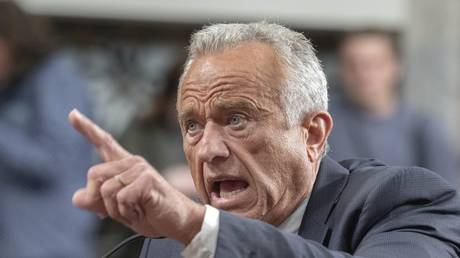Trump Uncertain on Upholding the Constitution When Pressed, Responds: 'I don't know'
Critics and several judges argue that the White House has compromised due process rights in its efforts to expedite the detention and deportation of migrants in the United States.

Critics and certain judges assert that the White House has undermined due process rights in its effort to swiftly detain and deport migrants in the United States. Trump's focus appears to lie elsewhere.
"Some of the worst, most dangerous people on Earth," Trump said in an interview with NBC's "Meet the Press," hosted by Kristen Welker. "And I was elected to get them the hell out of here and the courts are holding me from doing it."
During the discussion, Trump notably disagreed with the idea that the Fifth Amendment provides citizens and non-citizens with the same legal rights.
"I don't know. It seems — it might say that, but if you're talking about that, then we'd have to have a million or 2 million or 3 million trials," Trump responded. "We have thousands of people that are some murderers and some drug dealers and some of the worst people on Earth."
The White House has enabled judges to dismiss asylum cases without hearings, halted funding for legal aid for unaccompanied migrant children, and sought to facilitate the expanded use of expedited removal.
When Welker asked if he needed to uphold the Constitution as president, Trump expressed uncertainty.
"I don't know. I have to respond by saying, again, I have brilliant lawyers that work for me, and they are going to obviously follow what the Supreme Court said," Trump explained.
However, just over 100 days prior, Trump took an oath that included a promise to uphold the Constitution: "I, Donald John Trump, do solemnly swear that I will faithfully execute the Office of President of the United States, and will, to the best of my ability, preserve, protect and defend the Constitution of the United States," he stated.
In March, the White House invoked a 1798 law to deport hundreds of immigrants identified as gang members to a maximum-security prison in El Salvador, known for its severe conditions.
One individual affected was Kilmar Abrego Garcia, who was deported to El Salvador despite an immigration court ruling that prohibited his return due to concerns of potential persecution from a local gang. The White House admitted to a mistake in deporting Abrego Garcia but has consistently maintained that it lacks the authority to compel Salvadoran President Nayib Bukele—an ally of Trump—to allow his return to the United States.
This stance comes even after a unanimous Supreme Court ruling mandated the administration to facilitate Abrego Garcia's return.
Thomas Evans for TROIB News












